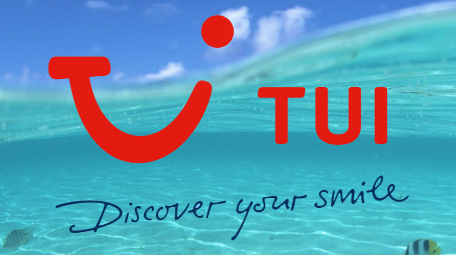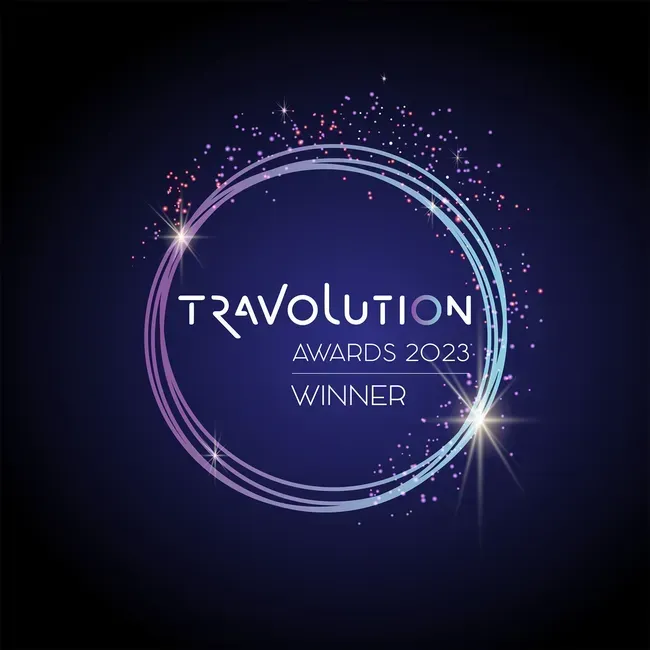How Can Email Marketing Transform Your Approach To Marketing A Travel Website?
Understanding Email Marketing
A effective email marketing strategy allows you to reach your audience directly in their inbox, providing targeted content that aligns with your travel offerings. It's a form of digital communication that involves sending tailored messages to a subscriber list, with the goal of promoting your travel website and engaging potential customers.

Definition of Email Marketing
Understanding email marketing means recognising it as a powerful tool to share information, promotions, and newsletters with your audience. This communication method focuses on building relationships with your subscribers, ultimately driving traffic to your travel website.
Importance of Email Marketing in the Digital Age
Around 4 billion people use email globally, making it a vital platform to connect with your audience. Utilising email marketing ensures that you can communicate directly with interested travellers, increasing the chances of conversion and fostering customer loyalty.
And in today's digital landscape, where social media can be overcrowded and information overload is common, email marketing stands out as a personalised communication channel. By providing tailored content that matches your audience's interests, you enhance engagement and boost the likelihood of repeat visits to your travel website.
Key Trends Influencing Email Marketing
Importance of keeping up with emerging trends in email marketing is paramount for your success. Trends such as automation, personalisation, and AI-driven content are shaping how you connect with your audience and optimise your messaging.
Indeed, harnessing these trends can greatly enhance your email marketing strategy. For instance, automated email campaigns enable you to send timely messages based on user behaviour, while personalised content can significantly improve open and click-through rates, leading to increased traffic and conversions for your travel website.
Key Takeaways:
- Targeted Communication: Email marketing allows for highly targeted communication with specific customer segments, increasing the relevance of your messages and enhancing engagement.
- Personalisation: Tailoring emails based on user preferences and behaviours can significantly improve customer experience and boost conversion rates.
- Cost-Effectiveness: It offers a budget-friendly alternative to traditional advertising methods, ensuring better ROI for travel promotions and offers.
- Customer Retention: Regular newsletters and exclusive offers keep your brand top-of-mind, fostering customer loyalty and encouraging repeat bookings.
- Performance Analytics: Email marketing provides valuable insights into customer behaviour and campaign effectiveness, allowing for data-driven improvements and strategy adjustments.
Benefits of Email Marketing for Travel Websites
While the travel industry evolves rapidly, email marketing remains a powerful tool to connect with your audience and enhance your marketing strategy. By utilising this channel effectively, you can reap significant benefits that will ultimately boost your travel website's performance and customer loyalty.
Enhanced Customer Engagement
On a personal level, email marketing allows you to directly reach and engage with your audience, fostering a sense of connection. Through tailored content, captivating subject lines, and valuable offers, you can create a two-way communication channel that keeps your customers informed and interested in your travel deals.
Increased Conversion Rates
Email marketing is instrumental in driving sales for your travel business. By sending targeted messages and calls to action, you can nudge potential customers towards booking their next trip with you.
In fact, studies have shown that email marketing yields one of the highest return on investment (ROI) rates among digital marketing strategies. By segmenting your email list and sending personalised offers geared toward your audience's interests, you can significantly enhance engagement and conversion, leading to an uptick in sales and brand loyalty.
Cost-Effectiveness of Email Campaigns
About budgeting concerns, email marketing proves exceptionally cost-effective. Unlike traditional advertising methods, which can quickly escalate, email campaigns require minimal investment while reaching a large audience.
Even small businesses can create impactful email campaigns without breaking the bank. This low-cost nature of email marketing allows you to allocate resources toward more creative strategies, maximising your travel website’s marketing potential without compromising your overall budget.
Personalised Marketing Opportunities
Rates of email engagement can drastically improve when you implement personalised marketing strategies. By analysing customer data, you can tailor messages and offers specifically for different segments of your audience, enhancing their experience with your brand.
Cost-effectiveness and personalisation often go hand in hand in email marketing. By crafting bespoke messages that resonate with your customers’ travel preferences and behaviours, you can create a more meaningful relationship, which in turn drives higher engagement levels and encourages repeat bookings.
Building a Targeted Email List
Your email marketing strategy begins with building a targeted email list tailored to your travel website audience. An effective list ensures that you reach the right people who are genuinely interested in your offerings, transforming your campaigns into a valuable marketing tool.
Strategies for Growing Your Subscriber Base
Beside creating captivating content, you can grow your subscriber base by offering enticing incentives such as exclusive discounts, travel guides, or contests. Promote your sign-up forms through various channels like social media, your website, and travel blogs to attract subscribers who resonate with your brand.
Best Practices for Collecting Emails
By implementing effective strategies like clear call-to-action buttons and landing pages, you streamline the process of collecting emails. Ensure that your sign-up forms are easy to navigate and placed prominently on your website, encouraging visitors to join your mailing list.
Targeted email collection means optimising your forms to gather only vital information. This minimises drop-off rates and creates a seamless experience for subscribers. Also, consider using double opt-in methods to confirm their interest and ensure they are genuinely engaged, building a more reliable list.
Maintaining List Hygiene and Engagement
Across your email marketing journey, maintaining list hygiene is vital for success. Regularly review and clean your list by removing inactive subscribers or email addresses that bounce back, allowing you to keep your engagement rates high.
Considering the importance of engagement, developing a re-engagement strategy for inactive subscribers can reinvigorate your list. Regularly assess your email metrics, including open rates and click-through rates, to understand your audience’s preferences better and adapt your content, ensuring they remain interested in your travel offerings.
Crafting Effective Email Campaigns
Keep your audience engaged and informed by crafting effective email campaigns that resonate with their interests. A well-designed email not only captures attention but also encourages readers to take action. Whether you are announcing a new travel package or sharing valuable travel tips, effective email marketing can elevate your travel website's visibility.
Designing Eye-Catching Email Templates
Effective email templates are visually appealing and aligned with your brand identity. Utilise vibrant colours and clean layouts to enhance readability and attract attention. Incorporating your logo and consistently themed graphics will help in establishing brand recognition, ensuring your emails stand out in crowded inboxes.
Writing Compelling Copy
For successful email marketing, your copy must resonate with your audience's desires and motivations. Use clear, action-oriented language that speaks directly to your readers. This approach not only drives engagement but also builds trust, encouraging potential travellers to explore the offerings highlighted in your campaigns.
But writing compelling copy goes beyond just presenting information. You should tap into the emotions of your readers by sharing personal experiences or engaging storytelling. Highlight unique travel experiences they can imagine themselves enjoying and address potential pain points to create a connection. This strategy frames your offerings as solutions to their travel dreams, ultimately boosting conversion rates.
Utilising Engaging Visual Content
Content that includes engaging visuals can significantly enhance the effectiveness of your email campaigns. Incorporate high-quality images and videos that showcase the beauty of travel destinations or the adventures you offer. A well-placed image can evoke emotions and stimulate interest, leading to higher click-through rates.
Utilising appealing visual content is imperative in capturing your audience's attention quickly. Stunning images of picturesque destinations, travel itineraries, and vibrant local cultures can ignite wanderlust in your readers. By strategically placing such visuals within your email, you guide your audience's attention to key messages or calls to action, making them more likely to engage with your content.
The Importance of A/B Testing
At the heart of effective email marketing is the importance of A/B testing. This practice allows you to compare different versions of your emails to determine which elements resonate better with your audience. It could be variations in subject lines, call-to-action buttons, or layout designs—testing these components can lead to improved engagement and conversions.
EyeCatching results from A/B testing are pivotal for refining your email marketing strategy. By analysing open rates, click-through rates, and conversion rates from your tests, you gain valuable insights into your audience’s preferences. Applying these insights helps you tailor future campaigns, ensuring your emails remain relevant and appealing, thus driving better results over time.
Types of Emails to Send
All email marketing campaigns can significantly enhance your travel website's outreach. The types of emails you should consider sending include:
- Welcome Emails
- Promotional Offers and Discounts
- Travel Tips and Guides
- Customer Feedback and Surveys
- Seasonal Newsletters
- Event Announcements
Welcome Emails
Above all, a well-crafted welcome email can set the tone for future engagements with your audience. This is your chance to introduce your brand, what they can expect from your communication, and how you can add value to their travel experiences.
Promotional Offers and Discounts
Send timely promotional offers and discounts to entice your subscribers. By creating exclusive deals, you can encourage bookings and drive traffic to your travel website, making it easier for users to discover your services.
Also, these promotions should be visually appealing and contain clear calls-to-action. Highlighting limited-time offers can foster a sense of urgency and motivate your audience to take immediate action, increasing your conversion rates.
Travel Tips and Guides
For your audience, sharing valuable travel tips and guides can position you as an authority in the travel industry. Tailor your content to meet the needs of your subscribers, providing them with actionable advice and inspiring content.
- Destination Highlights
- Travel Hacks
- Local Insights
Assume that your readers appreciate practical and insightful information that can enhance their travel experiences. This can lead to greater engagement and a loyal following.
It’s necessary to continually refine your tips based on user interests and travel trends, ensuring your content remains relevant and appealing. You can encourage interaction by asking for their travel experiences and suggestions.
Customer Feedback and Surveys
Any travel website can benefit from gathering customer feedback. Conducting surveys enables you to understand your audience's preferences, enhancing your services according to their needs.
Due to the feedback collected through surveys, you can make data-driven decisions that amplify your customers' experiences. Incorporating positive responses and addressing difficult issues can also create trust and loyalty among your audience, ultimately leading to satisfied patrons and repeat customers.
Measuring Success in Email Marketing
Despite the investment of time and resources into your email marketing campaigns, it is necessary to assess their effectiveness. By establishing a framework for measuring success, you can refine your strategies and achieve better results for your travel website. Understanding key performance indicators (KPIs) is a vital step in this process, allowing you to evaluate how well your emails resonate with your audience and support your goals.
Key Performance Indicators (KPIs)
About KPIs serve as benchmarks to gauge the effectiveness of your email marketing efforts. Metrics such as open rates, click-through rates, conversion rates, and overall ROI can provide invaluable insights into how well your audience engages with your content. By focusing on these KPIs, you can identify areas for improvement and tailor your strategies for maximum impact.
Analysing Open Rates and Click-Through Rates
Rates are fundamental metrics that reveal how many recipients are opening your emails and engaging with your links. Monitoring open rates allows you to assess the effectiveness of your subject lines and the timing of your emails, while click-through rates indicate the level of interest your content generates. These metrics collectively help guide your content strategy and delivery methods.
Consequently, optimising your email subject lines and content layout can lead to improved open rates and click-through rates. Experimenting with personalisation, segmentation, and A/B testing can help you discover what truly resonates with your audience. As these rates improve, you’ll likely observe an increase in user engagement and interest in your travel offerings.
Tracking Conversions and ROI
Any successful email marketing campaign ultimately aims to drive conversions and deliver a positive ROI. Tracking these metrics will help you understand how many readers are taking desired actions, such as signing up for your newsletter, booking travel services, or making purchases. You can then evaluate the overall effectiveness of your campaigns in meeting your business objectives.
Indicators of successful tracking include monitoring sales generated directly from your email marketing efforts and measuring overall ROI against your campaign costs. By assessing these numbers, you will gain clarity on which strategies yield the best results, allowing you to allocate resources toward the most beneficial practices for your travel website. This ensures a more sustainable and profitable approach to email marketing.
Advanced Email Marketing Strategies
For travel website owners looking to elevate their marketing game, advanced email marketing strategies are vital. These techniques not only enhance your outreach but ensure that your campaigns resonate with your target audience. Here are some strategies that can help transform your email marketing approach:
- Automation and Drip Campaigns
- Segmentation Techniques for Targeted Messaging
- Leveraging User-Generated Content
- Automation: Set up automatic email sequences based on user behaviour, such as welcome emails and follow-ups.
- Drip Campaigns: Send a series of scheduled emails to nurture leads and convert them into customers over time.
- Segmentation: Group your email list based on demographics, interests, or behaviours for more targeted communication.
- User-Generated Content: Utilise content created by your customers in emails to strengthen authenticity and engagement.
Automation and Drip Campaigns
Any effective travel email marketing strategy should include automation and drip campaigns. By automating your emails, you can save time and ensure consistent communication with your audience. Drip campaigns keep your subscribers engaged by sending them a series of tailored messages over a specific period. This can guide them through their journey, from initial interest to booking a trip, ultimately increasing conversion rates.
Segmentation Techniques for Targeted Messaging
Campaigns that use segmentation techniques for targeted messaging can significantly improve your email marketing outcomes. By dividing your audience into specific groups based on factors like previous travel experiences or preferences, you can send personalised messages that resonate more deeply with each segment. This targeted approach helps increase engagement and drive conversions.
But it’s important to continually analyse and refine your segmentation strategies. Regularly evaluate the performance of your segments to ensure they align with your marketing objectives. Customised email campaigns that cater to different user interests yield higher open and click-through rates, enhancing your overall email marketing performance.
Leveraging User-Generated Content
Techniques that involve leveraging user-generated content, such as customer reviews and travel photos, can significantly enhance your emails. Incorporating authentic content created by your customers adds social proof to your offerings, which can increase trust and encourage engagement. Sharing these experiences encourages your audience to participate and feel connected to your brand.
Marketing your travel website through user-generated content can create a powerful community. Highlighting traveller experiences and testimonials not only boosts credibility but also drives engagement. By showcasing the voices of your satisfied customers, you can inspire potential travellers to take action and book their next adventure with you. This authentic connection is valuable in cultivating loyal customers and generating positive brand perception.
FAQ
Q: What role does email marketing play in engaging travel website visitors?
A: Email marketing serves as a direct line of communication with potential travellers. By collecting email addresses through sign-up forms on your website, you can reach out to users with personalised content, including travel tips, destination highlights, and exclusive offers. Engaging your audience through well-crafted newsletters helps build a relationship over time, encouraging them to return to your site for future travel planning.
Q: How can email marketing enhance customer loyalty for a travel website?
A: Email marketing helps foster customer loyalty by providing value beyond the initial trip. You can send follow-up emails after a customer’s travel experience, soliciting feedback and sharing recommendations for future trips. Additionally, loyalty programs can be promoted through email campaigns, offering special discounts or perks for repeat customers. Through consistent communication and tailored offers, travellers are more likely to return to your services when planning their next adventure.
Q: What strategies should be implemented in email marketing for a travel website?
A: To effectively utilise email marketing for a travel website, several strategies can be employed. First, segment your email list based on user behaviour, preferences, and demographics to ensure your messages are relevant. Second, create visually appealing content that showcases destinations with high-quality images and compelling storytelling. Third, include clear calls to action and easy access to booking options. Lastly, monitor engagement metrics to iterate and improve your campaigns continuously, tailoring your approach based on what resonates with your audience.












